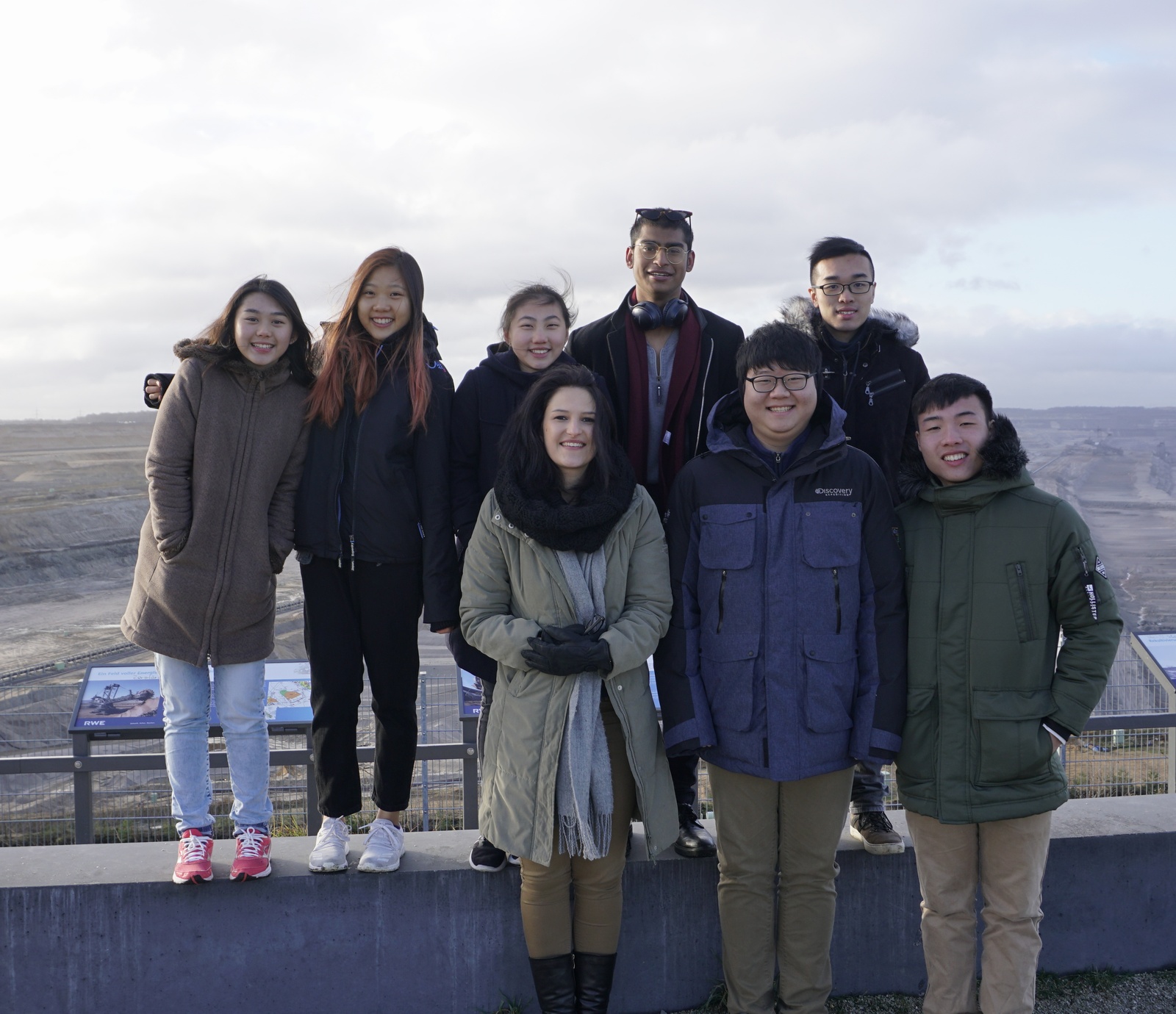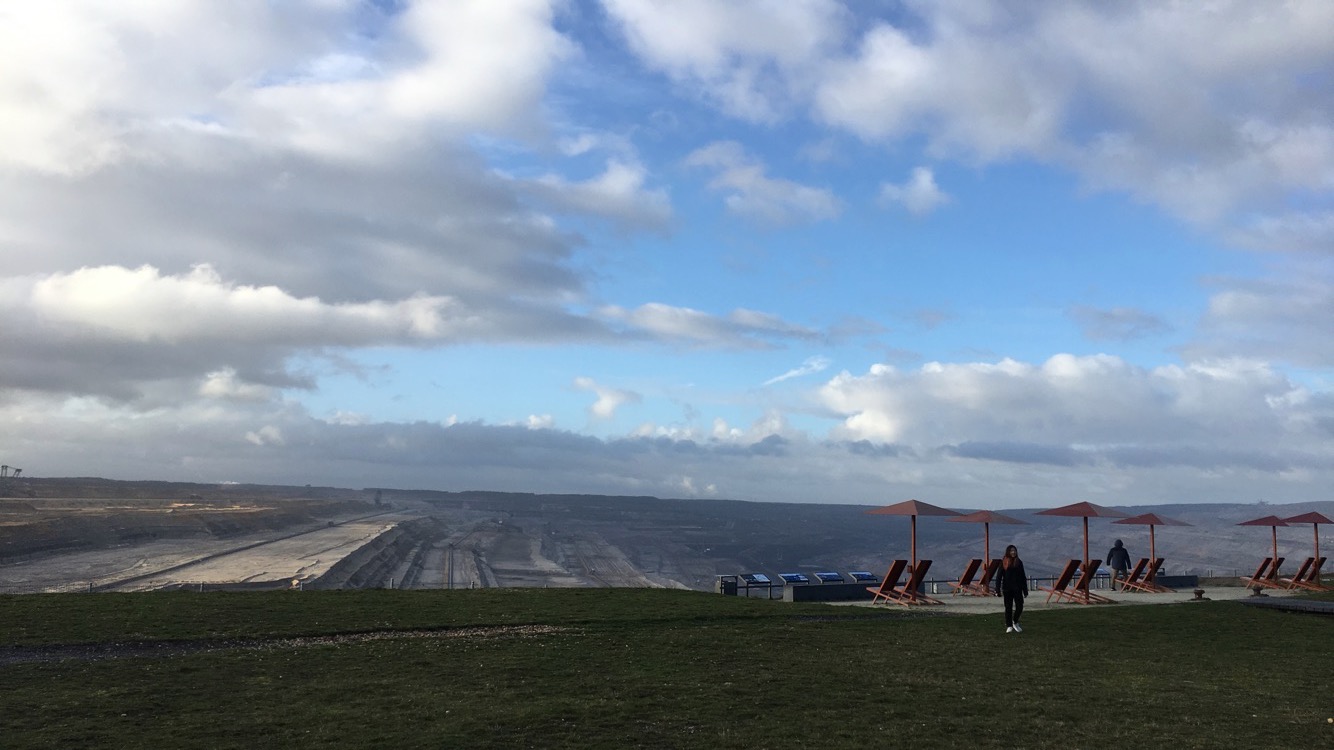



For seven days, from January 5 to 12, I attended the EVMT study trip to Cologne, Germany, where we visited various firms and organizations that gave us a peek into how environmental issues are being dealt with in Germany. The trip was organized into themes to ensure that we were getting a holistic view of the different facets of the environmental system—from waste management to energy transition and policy, renewable energy, and circular economy. This eye-opening experience inspired insights and possible solutions towards making our own city more sustainable.

The experience I found most interesting was our site visit to the Open Cast Lignite Mine Grazweiler in Düsseldorf, operated by the company RWE. We were taken on a tour around the mine by BUND (Friends of the Earth), a German non-governmental organization dedicated to preserving nature and protecting the environment. After hopping around and seeing the full scale of the mine, we concluded our tour at the Viewpoint Terra Nova.
While I had an idea of the size of the mine from previous research, it was still astonishing to actually see how huge it was up-close. The 48 km2 area goes as deep as 210 meters, and mines 35 million tonnes of lignite per year, generating a third of the CO2 emissions in Germany. There is a certain irony seeing steel umbrellas and sun loungers designed to imitate what the future of the mine would look like as a lake, as though trying to mask the mass destruction right in front of your eyes with a little bit of imagination.
We learnt that there has been no effort to regularly assess the mine’s environmental impact since it started operating in 1978. In fact, RWE’s plan for the site until year 2045 includes an expansion project that will clear an ancient forest essential to the area’s biodiversity, the Hambacher Forest. While walking along the tranquil, peaceful forest, we saw signs of protest from the community. Some even built treehouses, asserting their choice to live in the area and to save the small fraction of earth that remains.

On a positive note, we also met eco-friendly companies like Juwi, which has been working to revolutionize the energy sector by using 100% renewable energy. Their office, true to their company vision, is self-sustainable and generates more energy than it uses, allowing them to sell that extra energy to the grid. Juwi focuses mainly on wind and solar energy given Germany’s climate and landscape. The road to 100% renewable energy, however, has not been a smooth one for the company, especially due to a number of laws that regulate construction of wind turbines. For example, these turbines must be built at a certain distance away from the nearest residence to avoid disturbance, and environmental impact assessments must be in place to ensure the safety of local species.
Our study trip also gave us an inside look at Germany’s notably progressive recycling system. The Pfand system ensures that both producers and consumers are involved in recycling products for either multi-use or single-use. Bottles are either labelled “mehrweg” (reusable) or “einweg” (disposable), enabling consumers to actively participate in the recycling system. When a consumer comes back with an empty recyclable bottle, it is placed into a machine, and the consumer is rewarded with a recycling deposit. We saw how this system has been incorporated in the community’s daily routine at a local supermarket named Rewe, where people would line up at the recycling machine with their bottles. The practice-turned-habit is very much similar with how Hong Kong citizens have adapted to bringing their own recycling bag to supermarkets.
Despite wins such as Juwi and Pfand, I’ve come to understand that the advancement of Germany’s waste and energy system is still weighed down by challenges, the most pressing of which is similar with most countries: politics. After the discussion with the spokesperson of the Green Party in the Federal State Parliament, we realized that there are so many conflicting interests that hinder the progress of green policies. Many times, the only possible way for progress to be realized is through compromise, which is still met with criticism by government sceptics.
All the different perspectives we encountered during our trip allowed us to see how local decisions are shaping our global environment. They served as opportunities for us to understand that while our planet may be under immense pressure to change, true progress takes time. For Germany, this progress is fuelled by a culture of environmental responsibility imbued among its people. The country’s stronger focus on maintaining ecological balance sets it uniquely apart from other industrial countries like Hong Kong.
With all their successful efforts in mind, I believe that Germany is an example of what a country could achieve with regards energy and waste management. Regardless of the different obstacles each country is faced, we all have the capacity to overcome them by learning from each other and adopting ideas that can, little by little, help improve the place we live in.
